BREAKING: No Trial. No Charges. Just Gone. Here is What the U.S. Did to Richard Duarte Rodríguez
We won’t let them forget Kilmar Abrego Garcia, and we shouldn’t let them forget Richard Duarte Rodriguez either.
Richard Alexander Duarte Rodríguez didn’t come to the United States looking for trouble. He came looking for a future. What he found instead was a bureaucratic machine that processed him like a number, detained him without a crime, and ultimately deported him to a foreign prison built for terrorists.
He was never criminally charged. He was never tried. He was never convicted. He just vanished.
This is what happened to Richard.
Originally from Venezuela, he arrived in the United States and underwent immigration processing. After a background check confirmed he had no criminal record and posed no threat, the U.S. government granted him Temporary Protected Status (TPS)—an acknowledgment that he was not only legally eligible, but deserving of protection.”
Two days after being released from immigration custody, he met the man who would become his closest friend in the States. Everything was new to him: the streets, the cars, the food. He was full of awe and joy, constantly filming his surroundings, laughing at American consumerism, and lovingly mocking how Americans "have one of everything." He loved pizza, bread, McDonald’s (despite warnings from his friend Brian), and dreamed of trying Popeyes and Taco Bell for the first time.
Rooted in Hope
He spoke on video chat with his children in Peru every night, without fail. They were his reason to keep going. It didn’t matter if he was exhausted from work, or if they had only a few minutes—he made time. You could hear his whole voice change when he talked to them. His face lit up in a way that said, "This is why I’m here." His children were his anchor. Even when he had nothing, he gave them everything he could from a distance: love, attention, and the promise that one day they would be together again. He was fascinated by the U.S. but rooted in family, kindness, and faith.
He talked about God often, always asked how others were doing, and was fiercely determined to work. His goal was to open a landscaping business. In the meantime, he took any job he could—at a bakery, doing maintenance, whatever was available. He was not a man above hard work. He wanted to do things the right way.
He lived in Miami with his aunt and her children. He had Temporary Protected Status (TPS) and he was working on receiving his work permit after immigration officials confirmed he had no criminal history. He was working towards becoming a legal resident. He attended regular check-ins with immigration as required for individuals under TPS. after immigration officials confirmed he had no criminal history.
He followed all the rules. He checked in with immigration every month. He was trying to do everything right.
The Fear Settles In
Even Richard—the same Richard who used to send excited voice notes about fast food, who laughed at Lamborghinis and taught himself English with a notebook—sounded tired. There was a heaviness in his voice that hadn't been there before, like someone carrying the quiet dread of being forgotten. He had just moved into a new apartment with a friend, finally getting out of a cramped space with his aunt. Things were starting to look up.
And then he vanished.
Detained Without Warning
In late January 2025, Richard suddenly went silent. He stopped responding to WhatsApp messages—the same messages that had once been full of laughter, voice notes, and videos of him marveling at his new world. His silence was deafening. After several days of gnawing uncertainty, his friend reached out to Richard’s aunt and confirmed what they had feared: Richard had been detained during one of his regular immigration check-ins.
He was quietly transferred—first to Krome Detention Center in Miami, then to El Paso, and finally to El Valle in Rayville, Texas.
He made just three phone calls—one from each place. The first came from Krome. His voice was laced with fear. He mentioned Guantánamo Bay—not as a distant threat, but as a real possibility. In El Paso, his voice was shaky with confusion. He knew he was being deported but didn’t know where to. He sounded like a man being swept down a river in the dark.
The last call came from El Valle. It was short, just a few minutes—a free call from someone who no longer had control of his future.
He told his friend where he was, asked him to let his aunt know. And then he said something soft: he missed him. He asked about the dog—the one who used to chase him around the field by their apartments, the one who still perks up and looks toward the door when she hears his name.
His voice in that final call was barely there. Not broken—but muffled, restrained, like he knew someone was listening. Like he knew something was ending. And maybe, in that moment, he did know.
He didn’t know what was happening. He didn’t know where he was going. He only knew one thing: whatever was coming wasn’t freedom.
Deported to El Salvador
Shortly after that call, Richard disappeared from the ICE detainee locator system. Days later, his name appeared on a list published by CBS News: one of 238 Venezuelan men deported to El Salvador under the revived Alien Enemies Act of 1798.
Only 23 of those men had any known criminal accusation.
Richard was not one of them.
He was told he was going home to Venezuela. Instead, he was flown to El Salvador, marched off a plane by armed guards, shaved, and locked in CECOT—a mega-prison built for gang leaders and enemies of the state. No trial. No hearing. No lawyer. No goodbye.

Who He Really Was
Richard's father, Alexander Duarte, was quoted in interviews saying that the U.S. government deceived his son. Richard believed he was being deported to Venezuela—but instead, he was flown to a prison in El Salvador without explanation or trial.
His father emphasized that Richard had passed background checks and was in the process of getting a U.S. work permit.
"He did everything the right way," his father said. "And they still sent him away like a criminal."
Richard was not a gang member. He denied any affiliation with the Tren de Aragua, the gang the U.S. government claimed these men were tied to. He was a young man who grew up in poverty in Venezuela, who lived in a house built into the rock, who cried when talking about his mother. He was soft-spoken, childlike in wonder, generous, and full of love. He was learning English so well he began teaching others.
He wanted to live his life. He wanted to work. He wanted to be good.
Life (and Death) Inside CECOT
CECOT is not just any prison. It is a massive maximum-security complex built by El Salvador’s president, Nayib Bukele, to hold the country's most dangerous gang members primarily leaders of MS-13 and Barrio 18.
It was designed for show: cells with no windows, 24-hour surveillance, mass punishments, and overcrowding so severe that prisoners are often forced to sleep standing. Food is scarce. There is no sunlight. Medical care is nearly nonexistent. Torture and humiliation are routine.
This is where the U.S. government sent Richard.
These photos were obtained from CBS News.
Despite having no criminal record, despite complying with every legal requirement asked of him, despite being a father and a peaceful man—Richard was shipped to a place built for war criminals. He was denied legal representation. He was denied asylum. He was denied basic human rights.
What happens now is horrifyingly predictable: unless something changes, Richard will never leave CECOT. He will spend the rest of his life in a concrete cell in a country he has never called home, surrounded by violence he had no part in.
All because he immigrated the “right way.”
Since his deportation, no one has heard from him. His family in Venezuela doesn’t know where he is. His friend—who helped him with commissary, searched for him on ICE’s website, and spoke to him in his final days of freedom—is still trying to tell his story.
Richard Duarte Rodríguez followed every rule. He applied legally. He complied with ICE. He waited patiently for a future that the U.S. promised—and then took away.
He thought he was going home. Instead, they made him disappear.
The world moved on.
But some of us haven’t.
His children have not forgotten.
His mother hasn’t forgotten.
His father hasn’t forgotten.
His family has not forgotten.
His best friend Brian hasn’t forgotten.
And we shouldn't forget either.
We won’t let them forget Kilmar Abrego Garcia, and we shouldn’t let them forget Richard Duarte Rodriguez either.
This article is part of an ongoing investigation into the use of the Alien Enemies Act and the secretive deportation of innocent Venezuelan nationals to an El Salvadorian Prison.
If you made it this far — thank you. This blog is completely free and always will be. I write to make sense of the chaos, connect the dots, and say the quiet part out loud when no one else will.
I’m going to keep speaking out—for Richard, and for everyone else.

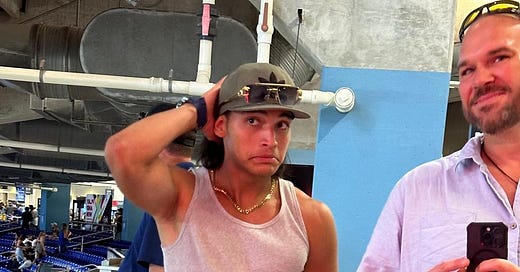



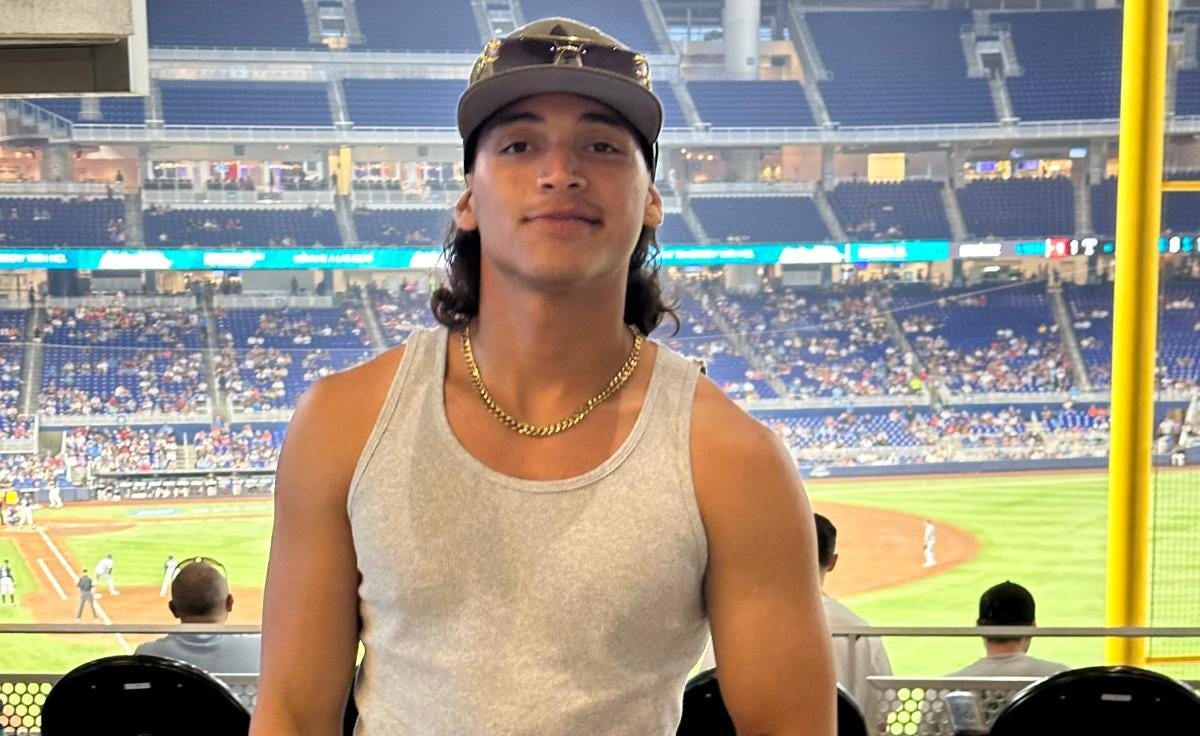
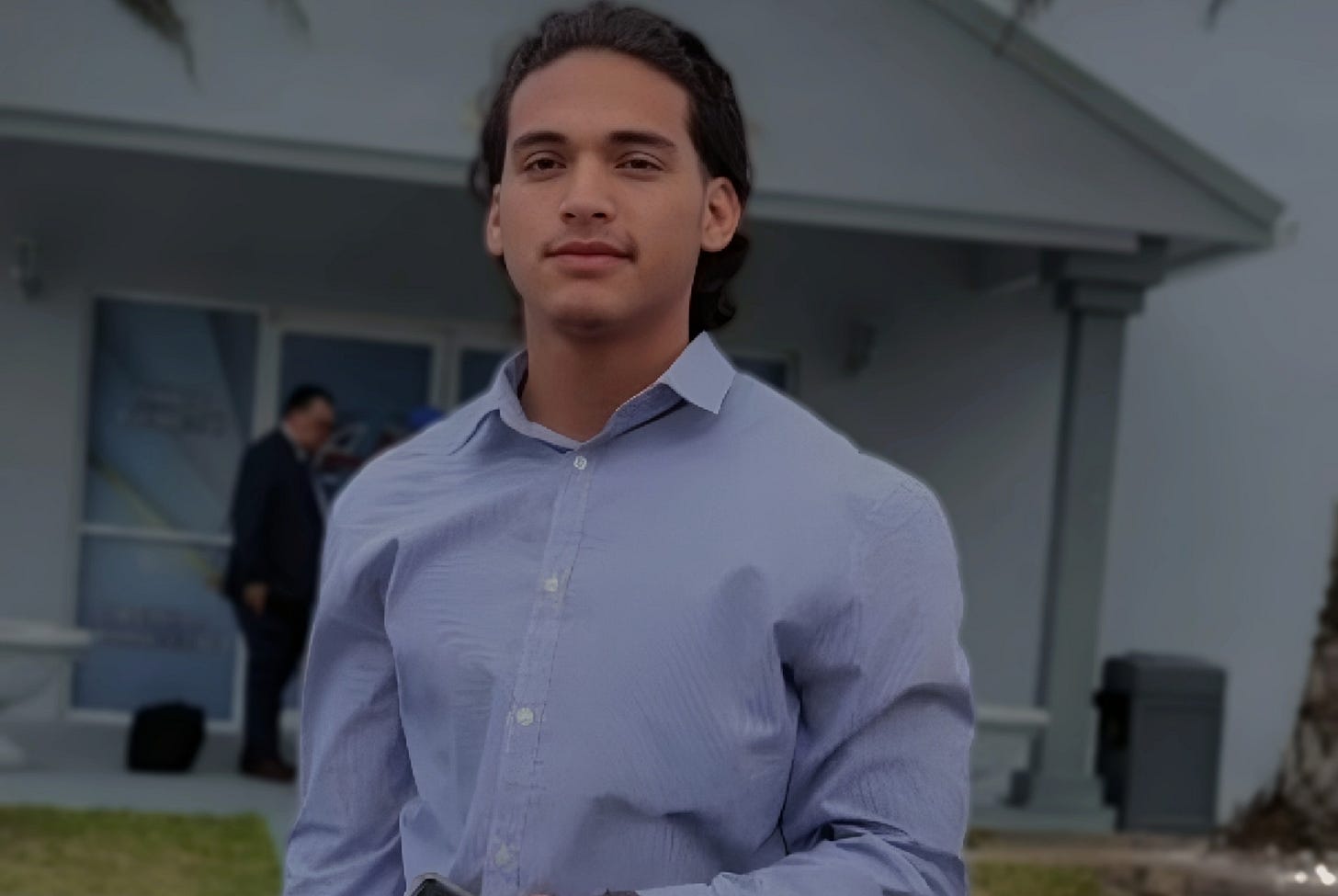


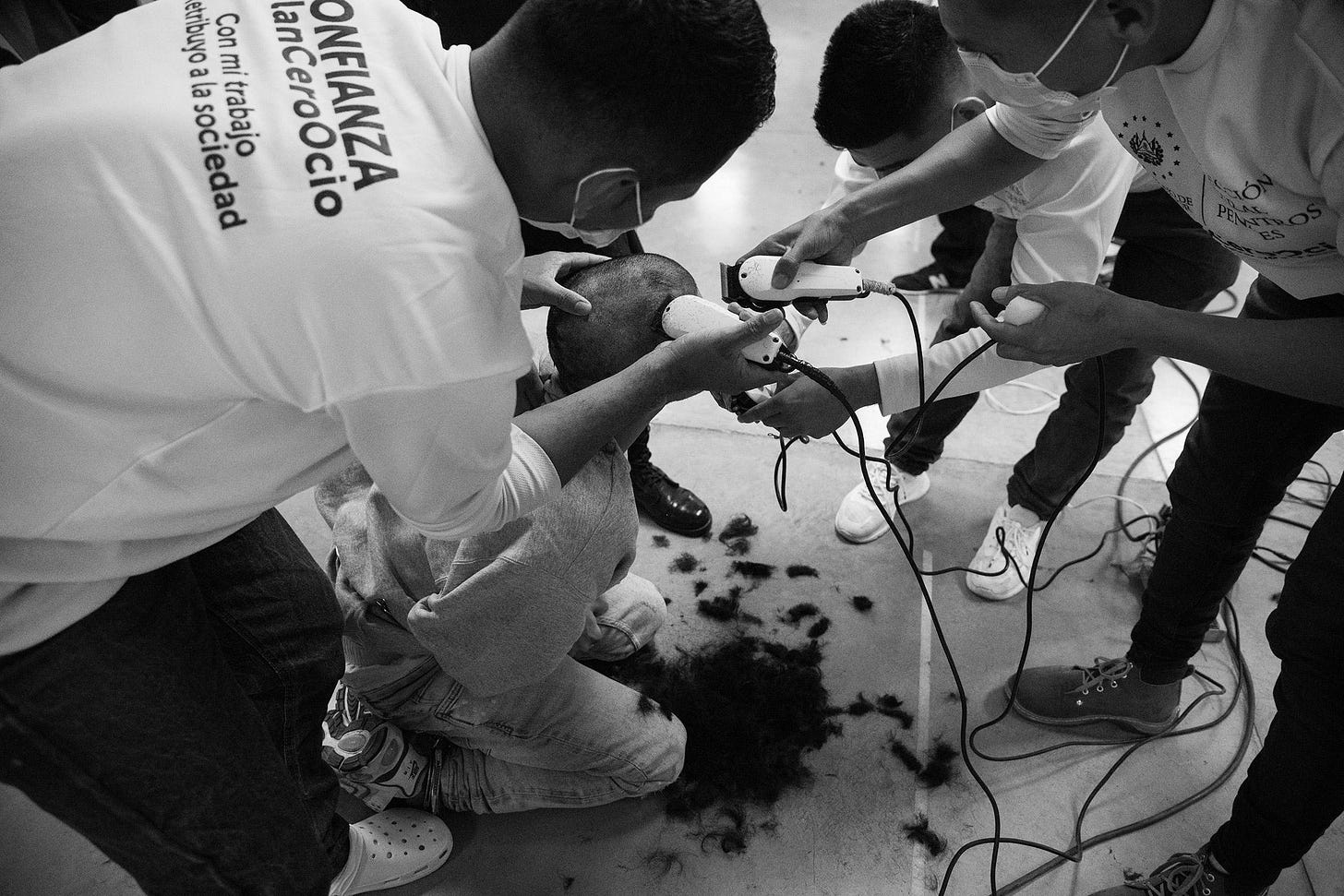
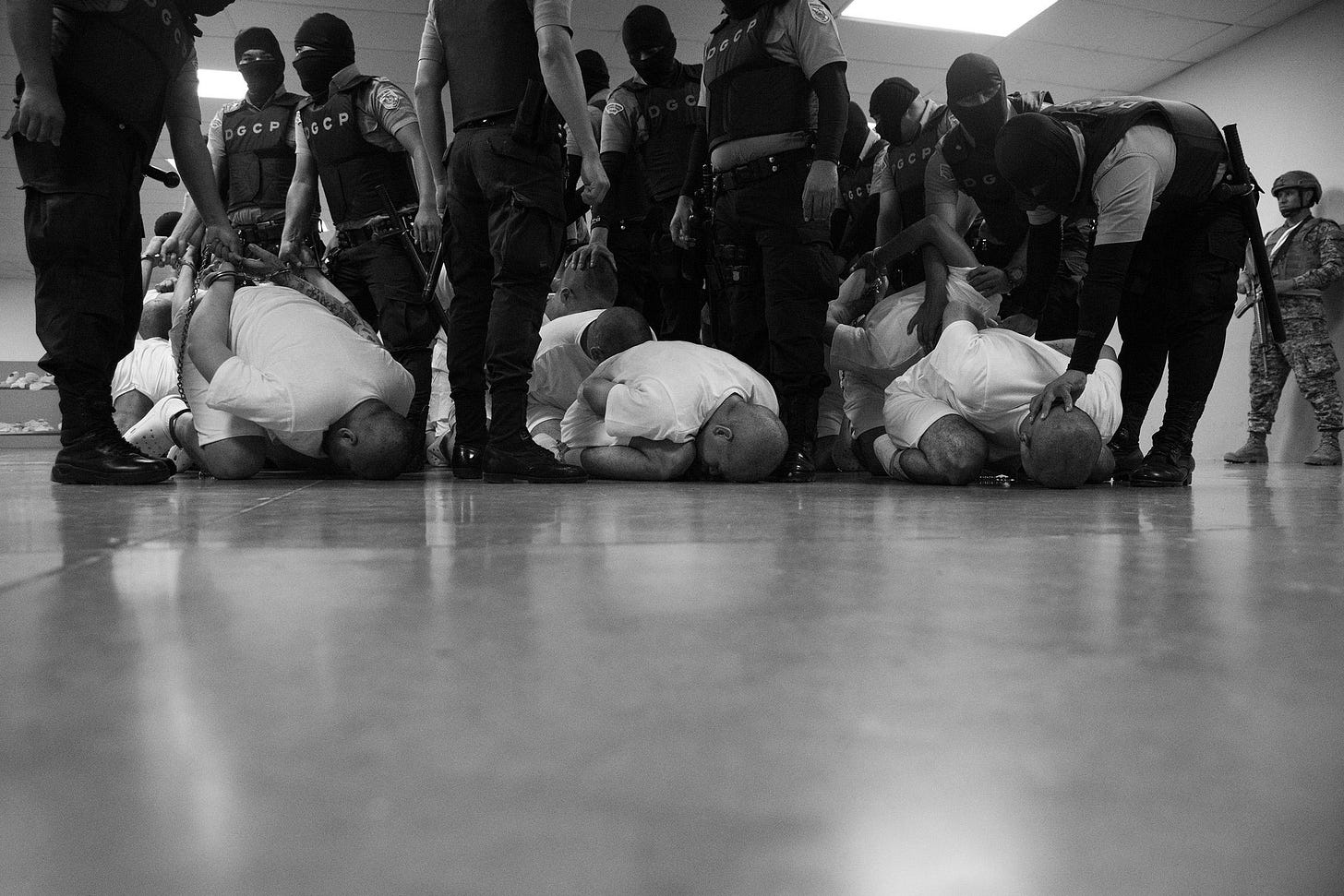


Is there anyone who still thinks calling these monsters NAZIs is an exaggeration?
They are trying to see what we will tolerate before we rise up against them.
This is beyond horrific . Our government, our “leaders” are tyrants without a care for the law, the constitution or their fellow human beings!